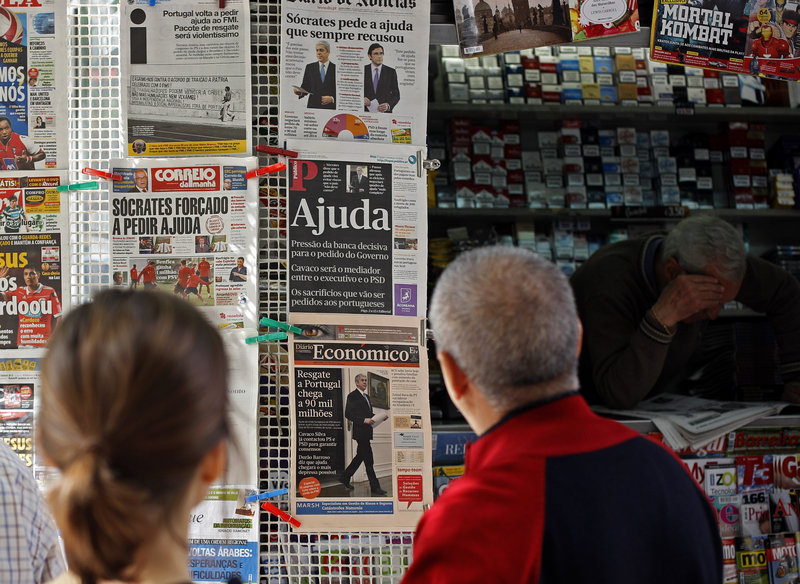FRANKFURT – European Central Bank President Jean-Claude Trichet left the door open for further interest-rate increases to tame inflation after raising borrowing costs Thursday for the first time in almost three years.
Inflation risks remain on the upside and the ECB’s monetary policy is still “accommodative,” Trichet said at a press conference in Frankfurt after lifting the benchmark rate by a quarter point to 1.25 percent.
The ECB is balancing the need for tighter policy in countries like Germany, whose economy is booming, against the risk that higher rates could exacerbate the sovereign debt crisis afflicting peripheral euro-area nations.
While bonds erased declines and the euro initially fell after Trichet’s comments as some investors pared bets on rapid rate increases, markets still expect the ECB to raise its benchmark to 1.75 percent by the end of the year, Eonia forward contracts show.
“Trichet retained a relatively hawkish tone but the market has already priced in so much and there was nothing in there to extend that theme,” said Jane Foley, a senior foreign exchange strategist at Rabobank International in London. Trichet “is paving the way for further rate rises but he’s also clearly unwilling to commit the Governing Council to pre-announcing rate hikes”
The ECB joins central banks in China, India, Poland and Sweden in raising interest rates even as the Federal Reserve remains reluctant to tighten amid divisions among its policy makers.
The Bank of England and the Bank of Japan Thursday left their key rates unchanged at 0.5 percent and 0.1 percent respectively. Inflation breached the ECB’s 2 percent limit in December and accelerated to 2.6 percent last month, the fastest pace in more than two years.
While ECB officials acknowledge that surging energy and food prices are largely to blame, they’re worried that workers will demand higher wages in compensation, entrenching faster inflation.”It is essential that recent price developments do not give rise to broad-based inflationary pressures over the medium term,” Trichet said.
The ECB has repeatedly been forced to delay the withdrawal of emergency policy settings enacted during the global financial crisis as Europe’s debt woes threatened to tear the 17-nation currency bloc apart. It is still providing banks with unlimited liquidity.
Send questions/comments to the editors.



Success. Please wait for the page to reload. If the page does not reload within 5 seconds, please refresh the page.
Enter your email and password to access comments.
Hi, to comment on stories you must . This profile is in addition to your subscription and website login.
Already have a commenting profile? .
Invalid username/password.
Please check your email to confirm and complete your registration.
Only subscribers are eligible to post comments. Please subscribe or login first for digital access. Here’s why.
Use the form below to reset your password. When you've submitted your account email, we will send an email with a reset code.